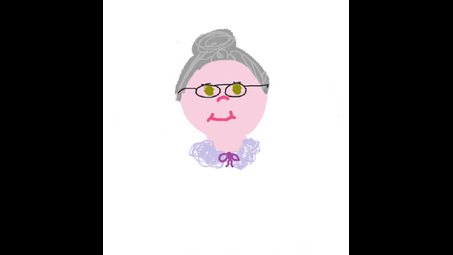The noun 'music' is a CONCRETE NOUN when used for written music, played music, or sung music. Music is something that can be seen on paper or heard when played and sung.
The noun 'music' is an ABSTRACT NOUN when used as a concept as in "that's music to my ears".

What else can I help you with?
Is the word harmony an abstract noun?
The noun 'harmony' is an abstract noun as a word for a pleasing combination or arrangement of different things; a word for a concept.The noun 'harmony' is a concrete noun as a word for a combination of different musical notes played or sung at the same time to produce a pleasing sound; a word for a physical sound.
Is the word laughter an abstract noun?
No, the noun 'laughter' is a concrete noun, a word for a sound that can be heard; a word for an act that can be experienced physically.
Is sensation an abstract noun?
The noun 'sensation' is an abstract noun as a word for a widespread reaction of interest and excitement; a word for a concept.The noun 'sensation' is a concrete noun as a word for a perception by the physical senses (sight, sound, smell, taste, touch).
Is astonishment an abstract noun?
Yes, the noun astonishment is an abstract noun, a word for an emotional reaction.
What is the Abstract noun for false?
Oh, dude, the abstract noun for "false" is "falseness." Like, it's just adding that fancy "ness" at the end to make it sound all official and abstract-like. So yeah, you can totally impress your friends now with your knowledge of abstract nouns.
What is the abstract noun for slient?
There is no abstract noun form of the adjective silent.The noun form is silence, a concrete noun; a word for the absence of sound, a word for a physical quality or condition.
What is abstract noun for silent?
The abstract noun form of the adjective 'silent' is silentness, a word for a quality of absence of sound; a word for a concept.The related concrete noun form of the adjective 'silent' is silence, a word for the physical state of absence of sound.
Is conduction an abstract noun?
Conduction can be an abstract noun, as it represents the act or process of transmitting heat, electricity, or sound through a medium.
What type of noun is silence?
Silence is an abstract noun. It represents the absence of sound or noise.
Is the noun clang concrete or abstract?
The noun 'clang' is a concrete noun, a word for a physical sound that can be heard.
What does a abstract noun sounds like?
An abstract noun does not have a specific sound or form. A noun is an abstract noun based on its meaning.An abstract noun is a word for something that can't be experienced by any of the five physical senses; something that can't be seen, heard, smelled, tasted, or touched. An abstract noun is a word for something that is known, learned, thought, understood, or felt emotionally.Examples of abstract nouns are:angerbeautycouragedangereducationfungenerosityhopeideajokeknowledgelovememorynegligenceopinionproblemquestionrumorstrategytroubleunderstandingvaluewealthyesterdayzeal
What is the abstract noun for silence?
The abstract noun for silence is "silence" itself. An abstract noun is a word that represents a concept, quality, or state of being, and silence fits this definition as it represents the state of being quiet or without sound.
Is the word harmony an abstract noun?
The noun 'harmony' is an abstract noun as a word for a pleasing combination or arrangement of different things; a word for a concept.The noun 'harmony' is a concrete noun as a word for a combination of different musical notes played or sung at the same time to produce a pleasing sound; a word for a physical sound.
Is the word buzzing an abstract noun?
No, a buzzing is a concrete noun, a word something that can be heard, a physical sound.
Is the word strong an abstract noun?
No, the word 'strong' is an adjective, a word to describe a noun as physically powerful; capable of exerting great physical force; in good or sound health, robust.The abstract noun for the adjective strong is strongness.A related abstract noun is strength.
What is the abstract noun of the verb laugh?
There is no abstract noun for the verb to laugh. The noun form of the verb to laugh is the gerund, laughing; a concrete noun as a word for a physical act. The noun 'laugh' is a concrete noun as a word for a physical action or sound. The concrete noun 'laugh' can be used in an abstract context. Example: He mistook me for a famous movie star. What a laugh!
Is the word laughter an abstract noun?
No, the noun 'laughter' is a concrete noun, a word for a sound that can be heard; a word for an act that can be experienced physically.
